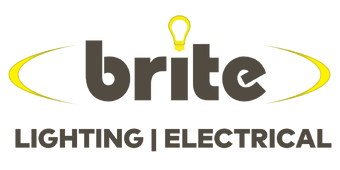
How to Choose the Correct Inverter for Your Home
How often have you lost productivity due to loadshedding? Probably many times, and chances are it will keep happening for quite some time as South Africa suffers from a terrible energy crisis. While the government is trying to overcome these issues, people have been turning toward solar power for its immense benefits. To maximise the outcome of a solar power solution, your solar panels need to be coupled with a quality inverter.
Whether you require an interrupted power supply in the form of a battery backup or a full solar system, an inverter is a must-have product. This article will help you select a high-quality inverter for your home, regardless of the power solution you choose, so you no longer have to lose your productive hours due to loadshedding.
Below, are some questions to ask, before choosing an inverter:
Are you looking for a full solar solution or a hybrid solution?
The first decision you need to make is whether you need a full/off-grid or a hybrid solar solution.
An off-grid solar solution works independently and doesn't depend on the grid in any form. It converts the DC power from the battery source charged by solar power to AC power to run the appliances in your home. It offers you energy independence and is more eco-friendly than its alternatives.
A hybrid solar solution has a built-in battery connection that stores energy for future use. Therefore, a hybrid system works perfectly when you want backup power during a power outage. It can expand, feed the grid, and save electricity in uncertain times.
Identify what your power requirements are
Buying a quality inverter requires you to first determine the power requirements of your home. It essentially means listing all your home's electric appliances, from lights to refrigerators, and calculating how much energy they consume. Suppose you have three fans, four light bulbs, and one television to operate on solar power.
Inverters come in different sizes and their size is determined by the load of power they need to supply.
Understand the different types of inverters (single or 3-phase inverters)
Although residential homes usually use single-phase inverters, it's still important to understand the differences between single and 3-phase inverters. A single-phase inverter converts the DC power from your solar panels to a single phase of AC power to run your appliances. It has one active wire for electricity flow and a neutral wire connected to the earth at the switchboard.
Conversely, a 3-phase inverter converts the DC power from solar panels to 3-phase AC output to power your appliances. These inverters are usually used in high-demand locations like large commercial buildings. It has three active wires and one neutral wire earthed to the switchboard. However, they can also be used in households that run on 3-phase power.
Understand the difference between modified sine wave and pure sine wave inverters
Modified sine wave and pure sine wave inverters differ in price, effectiveness, and other factors. A pure sine wave inverter gives its output voltage in the form of sine waves. Therefore, you need them if you want to stay connected to the grid.
Moreover, you need them for operating sensitive equipment, such as TV’s, microwaves, refrigerators, etc. Pure sine wave produces clean, quiet, and reliable output for operating appliances in your home.
The polarity keeps switching between positive and negative in a modified sine wave inverter. However, these abrupt changes can affect sensitive appliances in your home, and you cannot operate medical equipment on a modified sine wave inverter either. Moreover, it produces a humming sound when devices are attached to it.
Know which batteries you are able to use with the inverter you are planning on purchasing
The battery has to be compatible with the inverter. Always make sure that the battery you choose for your system is able to communicate with the inverter of choice.
Know how many batteries you can connect to a particular inverter
The number of batteries you can charge with an inverter depends upon the charging current. Ensure the battery capacity is within the charging current limits; otherwise, the battery doesn't charge or could take too long to charge.
Inverters and solar panel capacity
The size of your solar panel matters a lot when deciding to buy an inverter. The job of an inverter is to convert the DC electricity coming from the solar panel into AC power (which is required to power up appliances). Therefore the inverter must have the capacity to handle the power being generated from the panel/s. The size of your inverter should directly correspond to the size of your solar panels.
For instance, if you have a 6 kilowatt (kW) system, your inverter should be around 6000W. Manufacturers usually have guidelines for pairing on their spec sheets. The manufacturer might void your warranty if you don't follow these guidelines and pair an inverter with solar panels outside of the restrictions on the guideline.
How Brite Lighting & Electrical can help you with an inverter purchase
If you want to get rid of loadshedding and want quality inverters to pair with your solar panels, look no further than Brite Lighting & Electrical, one of South Africa's leading electrical wholesaler. Established in 2003, we have built our reputation amongst thousands of customers by sticking to our pillars of quality, integrity, and professionalism.
We have a wide variety of inverters from top brands and many loadshedding essentials available online. You can purchase immediately by visiting our website and get free delivery with orders above R1000. So, what are you waiting for? Browse our online store today and take back control of your power supply!